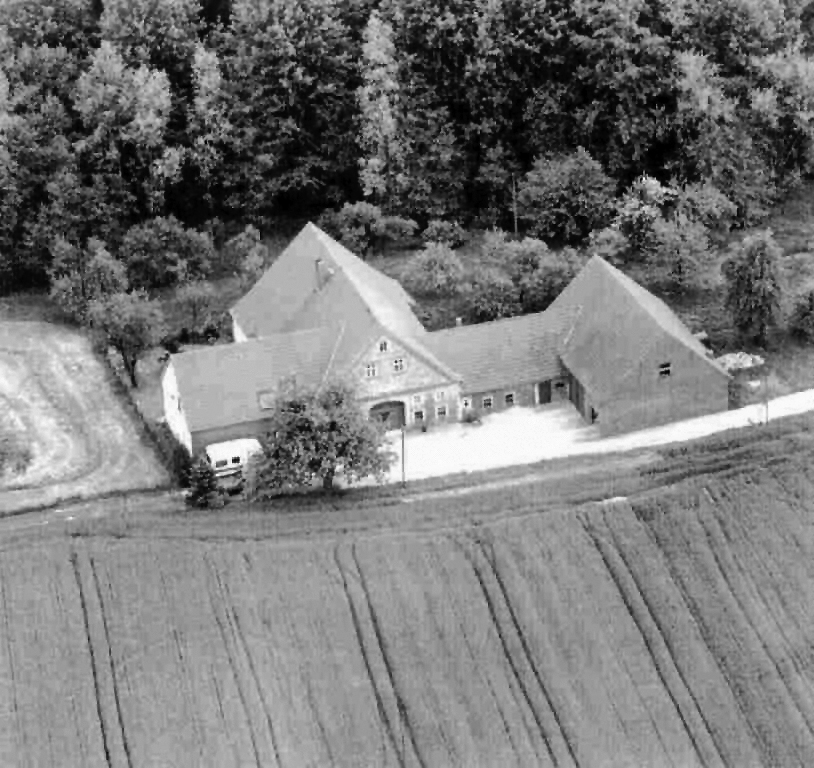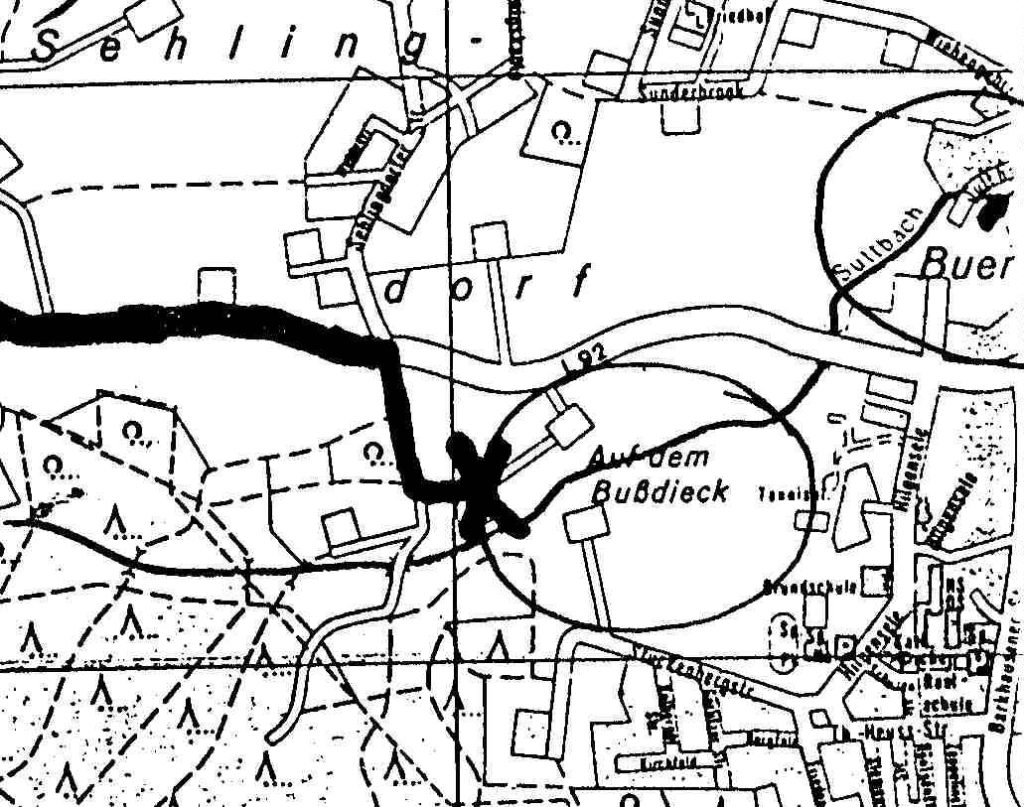The historic family farm estate called Am Bußdieck for “Auf Dem Bußdieck” (“On the Bußdieck”). Since a German from Berlin is called a Berliner, from Frankfurt a Frankfurter, and so on, one who lived on the Bußdieck would be called a Bußdiecker. The grapheme ß (called eszett) indicates a sharp S sound, and words that historically contained ß are often written with “ss” in its place.
In that area in the 1700’s there was a class in society known as Erbkoetterschaften (or Erbkötterschaften) who had a hereditary right to live on a particular section of land, although they did not hold title to it. At least some of the Buschdieckers (see section on different spellings below) fell in this category.
One of the ways that the Erbkoetterschaften earned the right to live on the land was to do the work required to convert unusable land into farmland. Much of the area around “Am Bußdieck” is marshy, wooded, or covered with underbrush. The German word “Busch” means not only “bush”, but also woods and underbrush. The word “Dieck” is a from local dialect of Plattdeutsch, or low German, that means “pond”. “Am Bußdieck” therefor means “at the woods pond”
Different Spellings
There were historically many variations in the spelling of the family name: Buschdiecker, Bußdiecker, Bussdiecker, and there have been many more changes since then. No one has kept the original spelling, but we now have spellings that range from Busdeker to Buszdieker, Bushdiecker to Bussdiker, and so on. There are even first cousins who spell the name differently.
We use the term “Bus’d’ker” to relate to all who carry the family name since our ancestors were not consistent in their spelling of the name. One of Caspar and Catherine’s great-grandchildren’s headstone spells the name “Buscdierker” while his birth certificate spelled it “Bussdieker”. A cousin spelled it Bussdiecker.


